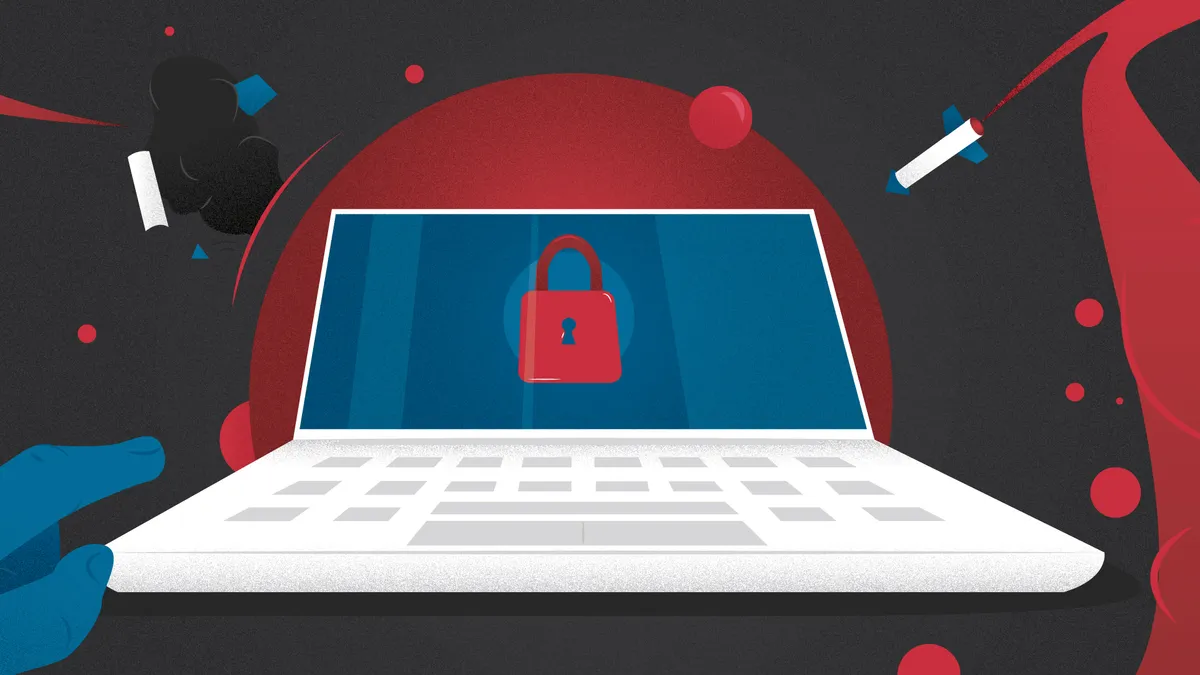Dive Brief:
- Over the next five years, companies in the private sector could lose up to $5.2 trillion in value creation opportunities, or 2.8% in revenue growth, due to cyberattacks, according to an Accenture report.
- Of those risks, 77% could come from direct attacks. The high tech industry could lose the most at $753 billion, followed by life sciences at $642 billion and automotive at $505 billion.
- Investments in the internet security market have exceeded investments in emerging technologies like blockchain, according to the report. The majority of companies, 59%, say they are unsure how to react to the "unstable" nature of internet security. About 61% of CEOs say their organization is unable to deal with digital economy security alone.
Dive Insight:
Companies are finally starting to see the value of cybersecurity outside the parameters of IT. An insufficiently secure digital economy could harm a company's growth and prosperity.
A secure digital economy "stands on the foundation of trust," according to Accenture. To do this, companies are looking toward new methods of security and adopting emerging technologies.
Accenture notes that companies and their C-suite officials "have the influence" to improve digital economy security starting with "improving the internet's global governance."
The top concern for U.S. CEOs is cybersecurity and the adoption of disruptive technologies is the second leading concern. As companies embrace new security tools, CEOs are aware of the long-term impacts the technologies could have in their future market plans.
But as the digital economy grows and more tools are introduced, security becomes a task for more than the CISO. The traditional way of working, where IT tells the rest of the business what they can and cannot do, is changing.
CEOs are now at the helm of security strategies and defining objectives because security is equally built on protection as it is on trust. Consumers won't do business with companies that unreliably handle data.














